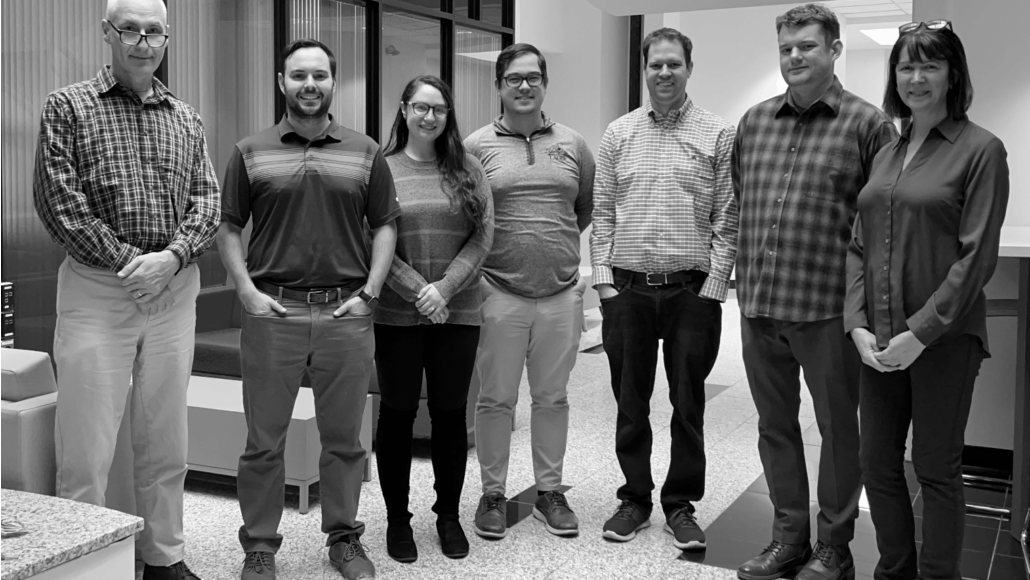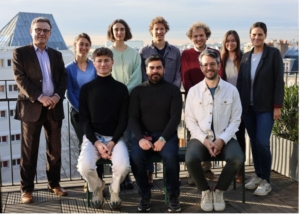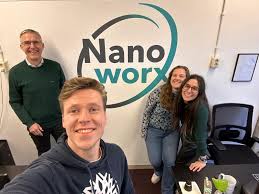
Countdown to SLAS Europe: ThirdLaw Molecular Inc.
Organised by the Society for Laboratory Automation and Screening (SLAS), SLAS Europe currently is taking place in Hamburg from 20–22 May. As part of a special series, European Biotechnology Magazine is profiling twelve of the most innovative exhibiting SMEs supported under the SLAS AveNew programme. Among them is US-based ThirdLaw Molecular Inc.
Founded by Dr. Christian Schafmeister as a spinout from Temple University, ThirdLaw Molecular is pioneering a novel class of molecules aimed at creating more effective, faster, and cost-efficient drugs. The company’s name is inspired by Arthur C. Clarke’s Third Law—“any sufficiently advanced technology is indistinguishable from magic.” ThirdLaw’s Spiroligomer molecules are synthetic, easy to manufacture, and highly selective in binding to disease-related proteins. Unlike small molecule drugs, which typically interact with protein pockets and may cause off-target effects, Spiroligomers match to the shape of the target protein precisely, reducing the potential for side effects. They also possess the ability to penetrate cells in a manner similar to small molecules, while maintaining the specificity of biologics, all without the need for expensive intravenous administration. Supported by a US$16m grant from the U.S. Department of Defense, ThirdLaw Molecular’s goal is to replace antibodies with its spiroligomer molecules.
ThirdLaw Molecular (TLM) is a biotech startup introducing a new approach to developing therapeutic molecules known as Spiroligomer™ molecules. According to Donald J. Bernsteel, senior scientist at ThirdLaw Molecular, who will pitch the platform in Hamburg, “these molecules combine the high bioavailability of small molecules with the selectivity and safety of monoclonal antibodies. Spiroligomer™ molecules are complex, fused-ring macromolecules with programmable shapes and diverse side chains, much like peptides. What sets them apart is their resemblance to some of nature’s most active non-protein molecules, such as brevetoxin and maitotoxin. These spiroligomers are “shape-programmed” to match the configuration of their protein targets.”
To rapidly identify Spiroligomer molecules that bind therapeutically relevant target proteins, TLM has created a DNA-encoded library containing 4.5 billion Spiroligomer™ macromolecules, which are screened against a wide range of protein targets. TLM is also in the process of developing additional libraries. The company has already identified molecules that bind target proteins with low nanomolar binding affinity. The unique feature of Spiroligomer™ molecules is their fundamentally different approach to protein binding compared to existing modalities, such as small molecules and biologics. Small molecules, typically less than 500 Daltons, can only interact with deep pockets in proteins, limiting their scope to approximately 850 protein targets. In contrast, biologics like monoclonal antibodies bind only to extracellular proteins, which account for around 10% of the human genome. In the near future, TLM plans to use its Spiroligomer™ technology to develop therapeutics capable of binding “undruggable” targets, such as Myc, the master regulator of cellular metabolism and proliferation. Targeting Myc could provide a potential “off-switch” for cancer.
“At SLAS, we will present our DNA-encoded library of 4.5 billion Spiroligomer™ molecules,” Bernsteel told European Biotechnology Magazine. “This library, consisting of four Spiroligomer™ molecules linked together, has been screened internally for toxins [as part of the Department of Defense project] and therapeutic targets, yielding nanomolar binders right from the results. We are eager to partner with companies interested in exploring this new modality for their existing targets.”
Companies that use laboratory automation to develop new modalities such as PD(L)1xVEGF bispecific cell engagers, PROTACS, TCR/CAR-Ts, RNA editors and corresponding vectors, capped multitarget ADCs, and cell and gene therapies, as well as the relevant screening and cultivation/design tools, are invited to contribute to the focus topic ‘New modalities’ in the SLAS section of the next European Biotechnology Magazine. As a printing subsidy is required, please contact our marketing team (Oliver and Andreas) at marketing@biocom.de to find out more about the conditions for company portraits, interviews, product information or advertorials


 Phabioc GmbH
Phabioc GmbH Minos Biosciences SAS
Minos Biosciences SAS Nanoworx BV
Nanoworx BV